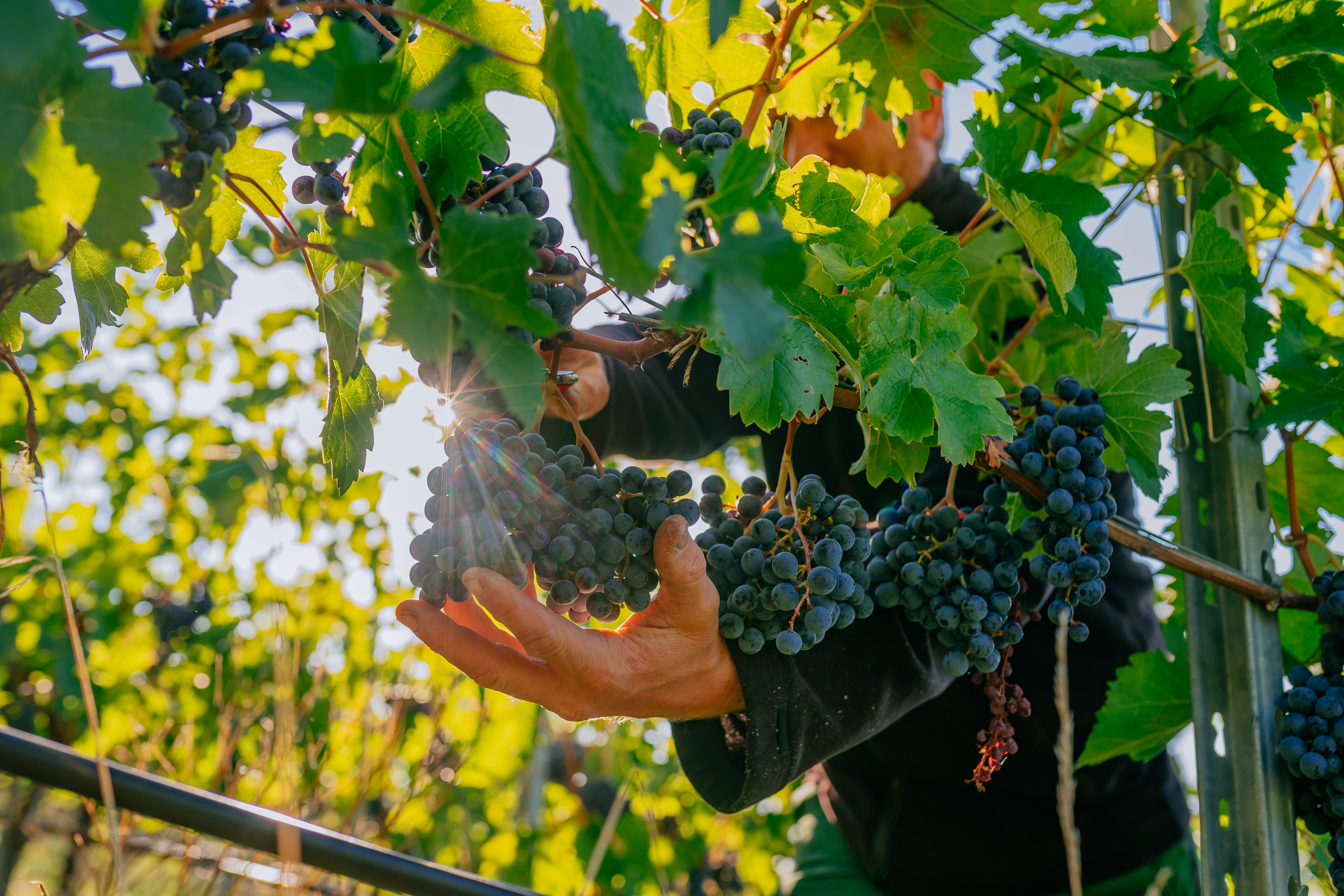Between tradition and new impulses
Wine growing has a long tradition in Stuttgart – but it’s nevertheless open to new trends. This is evident, among other things, from the many awards conferred each year on its vintners.
As a wine region Stuttgart has long since achieved international standing. This is confirmed year after year by the numerous prizes awarded to its wineries: In 2024, the Aldinger winery achieved first place in the "Lemberger dry" category with its „2022 Fellbach Lämmler Lemberger VDP.Großes Gewächs trocken“. At the MUNDUS VINI 2024 Spring Tasting Felsengartenkellerei Besigheim was honored as the Best German Wine Cooperative. The title "Red Wine of the Year" was awarded to the Aldinger winery from Fellbach for their “2022 Untertürkheimer Gips Marienglas Spätburgunder trocken VDP Großes Gewächs” as part of the 2024 German Red Wine Award organized by the specialist magazine Vinum.
By the 16th century Stuttgart was already one of the largest wine-growing communities in the Holy Roman Empire of the German Nation. The main wines grown in the Stuttgart Region today are the red varieties Trollinger, Lemberger and Spätburgunder (Pinot Noir). Trollinger is as inextricably linked to the region as Porsche and Mercedes-Benz are to Stuttgart. This fruity, light red wine matures late and can also be enjoyed, nicely chilled, when it is still young. Originally this vine with its large grapes came from the South Tyrol and Trentino, where it goes under the name of Vernatsch. Nevertheless, it would seem likely that the name "Trollinger" is a corruption of "Tirolinger“. As far as white wines are concerned, Riesling leads the field and is made into outstanding wines by local vintners. Other varieties include Kerner, Weißburgunder (Pinot Blanc) and Sauvignon Blanc.
Stuttgart's topography is unique in Germany. The city centre nestles in a valley basin, enclosed by green hills. Thanks to this unique location, vineyards can even be found in the centre of town. In order to be able to access the steep terraces, vintners built flights of steps and paths there in the second half of the 19th century, known as "Stäffele" ("steps"). The state capital of Stuttgart is the only German city to own 16 hectares of municipal vineyards. These are spread over nine different locations, most of which consist of steep, terraced vineyards, small plots and areas that are difficult to access. Since 2023, the City of Stuttgart Winery has been an organic winery and fully certified by BIOLAND.The city's own wines can be sampled and also purchased at the city of Stuttgart's Vinothek in the centre of town.
The younger wine growers from the Stuttgart Region – some of them in the second or third generation – have brought a breath of fresh air to the viniculture scene. And these young growers produce not only excellent wines, but also other kinds of alcoholic beverages: “GINSTR”, one of the world’s finest gins, was developed in cooperation with Markus Escher from the Weingut Escher.
Since October 2020 the state capital of Stuttgart has officially borne the title of "Weinsüden-Weinort" – the South German wine-growing community. This accolade, awarded by the Tourismusmarketing GmbH Baden-Württemberg (TMWB), for the first time honours cities and communities that can look back on a long history of viniculture.
